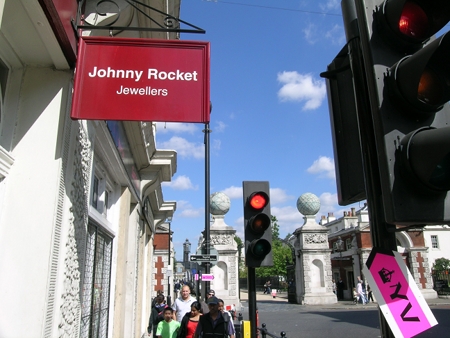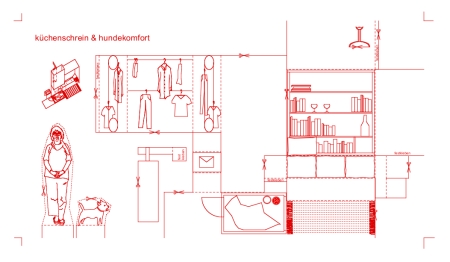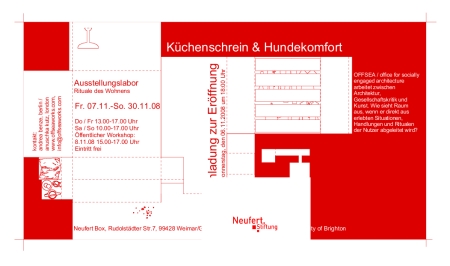Archive for the 'UK' Category
Wednesday, April 28th, 2021
To those who are not aware of the fact: The main authors of this randform blog (Tim and Nad) are math Ph.D.’s. Since now quite a while we are very concerned about the fact that (pure) math research is increasingly put under high retrenchment pressure. So for example under the name of “shaping for excellence”, the University of Leicester will decrease its fundamental research capacity. For “pure” math this means: the University VC (=vice chancellor) proposes to cease research in pure mathematics and wants again to fire all researchers. It is claimed that this is necessary because: “…to ensure a future research identity in AI, computational modelling, digitalisation and data science requires ceasing research in Pure Mathematics in order to invest and extend activities in these areas.”
For those who know about the mathematics behind AI, computational modelling and digitalization this sounds not only absurd but rather like to cut one’s nose to spite one’s face. But it seems things are even worse that is this “triage” seems to be a pretense as they give no concrete plan “to invest or extend activities” but just to cut in fundamental mathematics research.
As a matter of fact this plan affects a high amount of female researchers. In fact by comparing with the list of academic staff (I count 39 academic staff members) and/or the list of group members in “applied math” and/or the list of women in mathematics on the equal opportunites web page it seems all women but 3 of Leicester’s math department are going to be fired.
Moreover University of Leicester management apparently refused to share data on finances with unions.
-> Please donate and Help Leicester Pure Maths fund Legal Support
or at least sign the petition.
posted by nad | math, perception, robotics, software, UK | No Comments »
Saturday, June 30th, 2018
Last year (Jan 2017) there was a long essay in the german newspaper “Die Zeit” (“The time”) about how important a natural scientific evaluation could be for historical research. The essay: “Darum hatte Hitler keine Atombombe” (“That’s why Hitler had no nuclear bomb”) was written by physicist Manfred Popp. A very brief summary of his argumentation is that a lot of historical research about german nuclear research during Nazi times was more or less flawed due to missing knowledge or misinterpretations of physical facts.
(more…)
posted by nad | berlin, communication, economy, math, nuclear, perception, physics, UK | 7 Comments »
Monday, July 29th, 2013
Here you get an exclusive look behind the randform (iron ;)) curtain:
Tim’s latest free time projects were heavily located in music electronics. His last weekend project was to use a socalled x-OSC chip (which he is currently beta testing) by the british company x-io technologies (see blue blinking board in the video) as a wireless remote control for a socalled ladder filter (unfortunately a bit hard to see in the wirings on a kitchen table…).
posted by nad | art and design, berlin, communication, music, perception, physics, procrastination, robotics, software, trips, UK | No Comments »
Friday, December 14th, 2012

Leonard Dobusch and John Weitzmann at the CC-10-birthday party
randform hasn’t yet reported on a rather new online tool in scientific publishing which is called figshare. The german reader may have already read about it in an article by Aleks Scholz at the blog Riesenmaschine, the scientific minded reader may have used it already.
(more…)
posted by nad | berlin, communication, economy, procrastination, software, trips, UK | 3 Comments »
Saturday, December 10th, 2011

Tonträgerindustrie auf dem Ladentisch
I left a long comment at the Berlin city blog Spreeblick which discusses the role of commercial social media, their democracy and the Gema (the german perfomance rights organization). The comment is in german and you can read it also after the click.
Addition on 20.08.2012: A part of this comment which deals with social media and democracy can be found translated in the randform post “translation.”
(more…)
posted by nad | berlin, communication, dance, music, procrastination, software, UK | 3 Comments »
Monday, September 12th, 2011
Recently I was –here on randform– recalling some of my pictures of a trip to Oxford. Here some more pictures from a previous trip.
(more…)
posted by nad | procrastination, trips, UK | No Comments »
Sunday, August 28th, 2011
Some recycled pictures from Oxford, England where I was on a conference last year. Since I had not much time and only my little camera with me, they are a bit random and fuzzy. However they still give some impressions so I decided to post them here.
The image of the women’s room in the youth hostel (see below) may look more uncomfortable than it actually was. That is luckily all the six women in the room were attending the conference and all of them were very considerate people that is the partying teenager stayed out of the room and thus we all had more or less rather quiet nights.
(more…)
posted by nad | architecture, procrastination, trips, UK | No Comments »
Thursday, July 23rd, 2009

Traffic lite in Brietain
Our friend Sophie Molholm coorganized recently a conference in multisensory research. Looking at the conference announcement I felt inspired to ask myself again to what extend rational cognitive instances do influence perception. An example: A traffic light in the western world is usually considered to have the colors red-yellow-green (or at least red and green (although the new LED lights look kind of bluish)). However I think it is important to note that in japaneese the green color for a traffic light – is not “MIDORI” (green), but “AOUI”, which is BLU! Did this make japanese people more prone to call something green-bluish “blue” instead of green? Doing experiments for this example might be difficult due to the ethnic pecularities, but I am sure there exist other examples and probably even studies on that subject.
here a little collection of randform posts related to the subject:
naming-gaming: evolution of languages
wirepullers: artwork challenging salience
manicone: artwork challenging 4 dimensional space perception
focus and context, part I: evolution and knowledge formation
focus and context, part IV: A Physicist Experiments With Cultural Studies: knowledge formation in humanities vs natural sciences
Le manoir du diable: conscientious coloring of astronomical data
common sense: designing computer minds at media lab
canny skinny skin scans perception and quantum computing (see also focus and context, part IIa: A quantum computation game)
error incognito:perception and space
Dreammachine: psychadelic effects in neuroscience
uncanny paintings: link to an experiment using facial expressions as a feedback interface for a painterly rendering algorithm
visualizing meaning: link to a survey concerning the usefulness of diagrams and charts in knowledge building (and a funny comment to that)
posted by nad | communication, computer vision, japan, perception, procrastination, software, trips, UK, visualization | No Comments »
Sunday, February 15th, 2009
Recently I had the chance to take part at three workshops. One in London at Imperial College, then a workshop in Goettingen and then a workshop on the island of Langeoog. I don’t know wether I find the time to report about the workshops. At least on my last day in London I made a visit to icy horniman park and some pictures which you may find behind the link.
(more…)
posted by nad | architecture, art and design, trips, UK | 1 Comment »
Saturday, November 1st, 2008
My sister Anuschka Kutz (who lives in London) and her friend Andrea Benze (who lives in Berlin) will have an exhibition/workshop about their project “Küchenschrein & Hundekomfort” (see also here) in Neufert Box, Rudolstädter Str. 7, 99428 Weimar/Gelmeroda
Times:
opening: Do 6.11.08 18.00
Fr 07.11.- So. 30.11.08
Do/Fr 13.00-17.00
Sa/So 10.00-17.00
workshop: 8.11.08
Wie sieht Raum aus, wenn er direkt aus erlebten Situationen, Handlungen und Ritualen der Nutzer abgeleitet wird?
How does space look like, if it is directly derived from experienced situations, actions and rituals of its users?


posted by nad | architecture, UK | No Comments »



